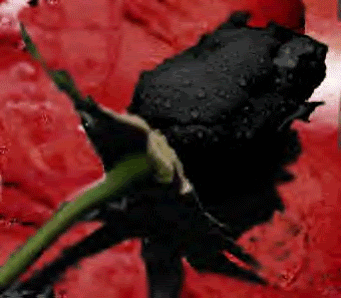 Christianity's relationship with witchcraft: Part 3
Christianity's relationship with witchcraft: Part 3I wanted to make a few closing points to this series, as well as tie in a few loose ends. First of all, I'm not an "ex-Christian," nor am I "anti-Christian." I just think that ExChristian.net did a good job, intrinsically, on this particular piece. This text was from one of their podcasts, but I thought it was important to make a text reference of it. I recall, unfortunately, of having lost important articles and text in the past. For the companion podcast, click here and select "Christianity's relationship with witchcraft" from the menu box.
I will also point out that every religion, spiritual tradition, and folk tradition of our ancestors is a part of this blog. Also, this blog has taken a look at religious and spiritual concerns of other peoples who have lived and have deep roots in North America... Christian/Catholic, or not. It is estimated, and I will post the references here in time, that the Camunian Valley was I recall about one-third "pagan" prior to the Val Camonica witch trials. If we are not sympathetic to the issue of this persecution, then who is!? Those Camunian Catholics and "Heathens" of the Middle Ages lived together in harmony.
The only thing I would disagree with in this article was the term "witchcraft." Although loosely a "magical tradition," I believe that most of the Camunian Heathenry were merely observing the "wheel of the year" and other ancient pre-Christian rites. Few literally practiced "magic," I believe, beyond simple folk traditions. "Heathenry" means "people of the hearth," or an earth-based spiritual tradition. In the Middle Ages, and going right back into the ancient world, the Camunian and Tellinian Heathens would gather on the very mountainous Tonale Pass to observe the seasonal sabbats. It was "Heathenism" (polytheistic earth-based religion), and prior to a millennium ago, it was "the religion of our people."
It probably didn't have "one name," but it later became known locally as "Stregaria." An old Camunian word, "Engermadura," may have had the same or a similar meaning. It likely meant "spell" or "charm." Another old Camun word, "Bodena," seems to be a reference to the ancient "stag god".... probably Cernunnos. It is translated to something like "the denomination of the old stag," and it seems to have been a type of reference to an actual name of the faith. Despite the chief male god--along with various other goddesses, and sometimes gods--the tradition seems to have clearly been more maternal, symbolized by the moon.
What is covered on this blog?
1) Items having to do with the Camunian, Brescian, Bergamask, Lombard, or Italian-Swiss cultures--past or present--which would include prior cultures of Lombardy. Also, openly reaching out to these concerns worldwide.
2) Items having to do with religion and spiritual traditions, which mainly include Christian denominations and Heathen traditions of past or present Lombardians, Europeans, or peoples with roots in North America. Also reaching out, in some form, to these concerns worldwide.
3) Items having to do with the environment, the natural world, the earth, and the universe; all of which our ancestors cared a lot about. Also reaching out, in some form, to some of these concerns worldwide.
4) Reaching out, in some form, to other more smaller "sub-ethnic" European-American concerns or regional/provincial associations relating to the Italian peninsula worldwide. For example, Basque, Bavarian, Welsh, Piedmontese, or Bergamask.
The more controversial items are purposely avoided. However, this doesn't mean that they should be avoided by individuals.
What are our goals?
1) Helping to facilitate the establishment of a "Lombardian-American" society of some type. For association, cultural enrichment, and study. This would be best headquartered somewhere in the Great Lakes region. Iron Mountain would seem appropriate. There needs to be a property, building, and at least two full-time staff to start.
2) To develop the idea of people of Camunian roots on this continent as something equivalent to a Scottish clann. Our heritage is unique. We should see ourselves as more of a family than a culture or demographic. We're currently invisible.
3) To restore honor, in some form, to the spiritual tradition of which we are all heirs to. Even if you're 100% Catholic, what makes us so different to modern Greek communities who--while practicing Greek Christian Orthodoxy--share a great reverence to their polytheistic ancestry. Why should we be so different?
Goal number one is really THE goal. It's the minimum of what we expect to accomplish. A person in California of Italian-Swiss ancestry, should feel entirely connected though that heritage to a person in Wisconsin of Bergamask ancestry. Their forefathers spoke the same Lombard language for many centuries! There should not be this disconnect.
.

No comments:
Post a Comment